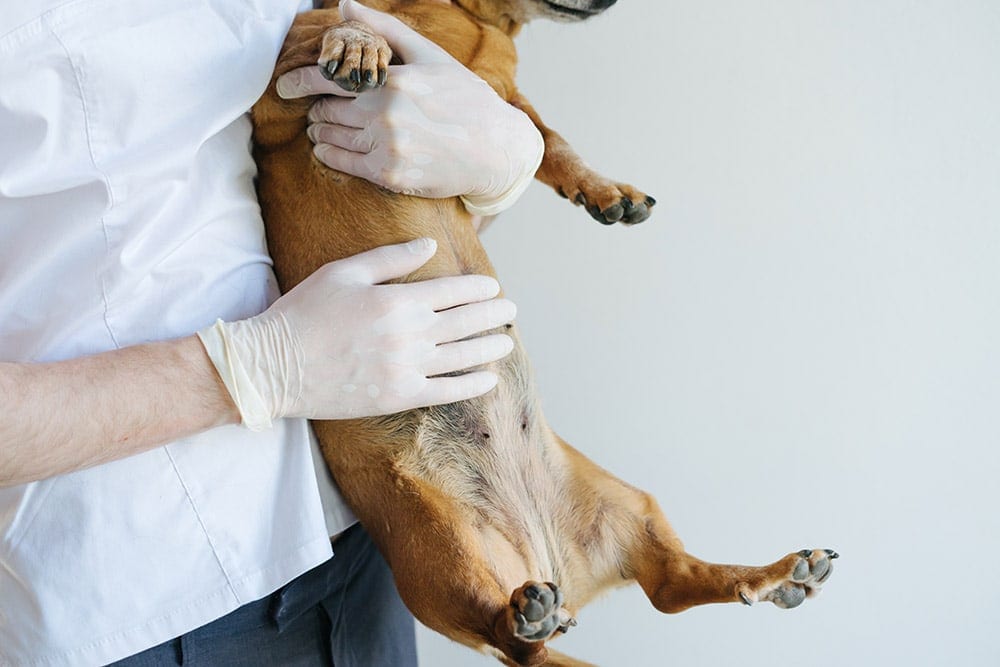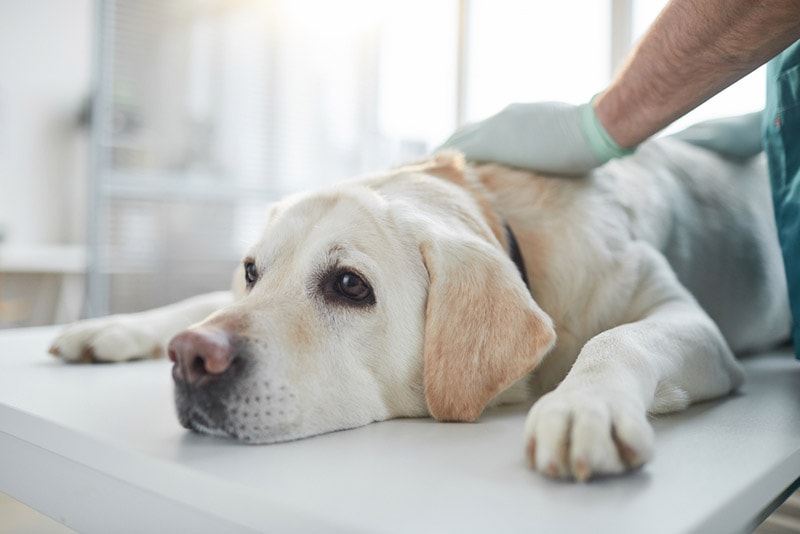
[ad_1]

If your pup has been diagnosed with pancreatitis, they are probably feeling pretty yucky. Naturally, you want to do everything you can to help them!
It is important to remember that pancreatitis is a condition that requires medical treatment. Affected dogs often benefit from a hospital stay, at least initially, to ensure they are hydrated, their pain and nausea well-managed, and they are eating on their own.
The tips included in this article should only be considered after your pup has been examined by a veterinarian, who has determined that it is safe for them to be treated at home. Be sure to follow all of their home care directions closely!

What is Pancreatitis?
Despite its small size, the pancreas is a hugely important organ. It makes digestive enzymes to help break down the food your pup eats, and critical hormones (like insulin) to regulate their blood sugar.
Pancreatitis is a painful condition that occurs when the pancreas becomes inflamed. This can happen out of the blue (acute pancreatitis) or become a longstanding condition (chronic pancreatitis).

How Is Pancreatitis Treated?
Many patients with pancreatitis need to stay in the hospital for a few days so they can receive intravenous (IV) hydration, electrolytes, pain medication, and anti-nausea drugs. This will help your pup feel better faster, and start eating on their own again sooner (which improves their prognosis).
Here are some of the fundamental principles of treating pancreatitis in dogs, with tips you can implement at home during your dog’s recovery.
The 5 Vet Recommendations for Caring for Dogs With Pancreatitis
1. Pain control
Pancreatitis is known to be painful. Even if your pup is not showing obvious signs of discomfort, it is best to give them the benefit of the doubt and administer pain medication as directed by your veterinarian.
What you can do to help:

2. Manage nausea
Dogs with pancreatitis are often nauseous because their inflamed pancreas sits right next to their stomach. It is important to manage their nausea so they feel as comfortable as possible, and to help maintain their appetite. Prescription anti-nausea medications like Cerenia® (maropitant citrate) are highly effective.
What you can do to help:
3. Encourage your pup’s appetite by offering small, frequent meals of a low-fat, highly digestible food
In the past, veterinarians often recommended fasting dogs with pancreatitis (i.e., withholding food; sometimes for days) in order to give the organ a “rest.” We now know, however, that good nutrition is extremely important for recovery and that pancreatitis patients who start eating sooner tend to do better!
The ideal diet for dogs with pancreatitis is low in fat and easy to digest. Your veterinarian may recommend a prescription food, or suggest temporarily cooking a bland diet for your pup at home (e.g., plain boiled rice with lean cooked chicken or ground beef).
What you can do to help:
4. Rest and TLC
Dogs with pancreatitis need lots of rest in order to recover, so plan on having a few quiet days at home. Some pups might enjoy soaking up some extra cuddles, while others would rather be left alone until they are feeling better.
What you can do to help:


A Note About a Newly-Approved Treatment for Pancreatitis in Dogs
In November 2022, the Food and Drug Administration (FDA) conditionally approved a new drug called Panoquell®-CA1 (fuzapladib sodium) for the treatment of pancreatitis in dogs. It has been used in Japan since 2018, with very promising results!
This medication is administered by intravenous (IV) injection while patients are in the hospital. Watch for more information to come about this exciting development.

Conclusion
Pancreatitis is a medical condition that requires veterinary treatment. It can be difficult to leave your beloved pup in the hospital, but it is often the best place for them to start their recovery. Hopefully you will be reunited after just a few days and you can continue their nursing care at home!
Always follow your veterinarian’s directions closely, including their long-term feeding plan, to help prevent pancreatitis from recurring.
Featured Image Credit: DimaBerlin, Shutterstock
[ad_2]
Source link


